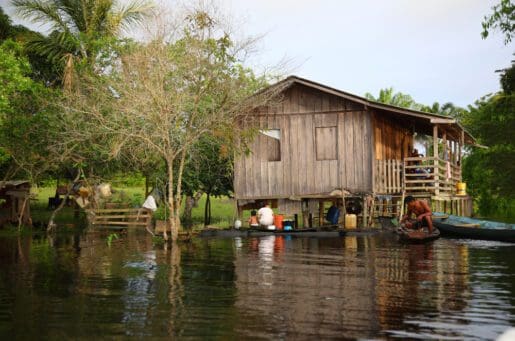Bioethics Forum Essay
Undocumented Immigrants and Covid-19 Vaccination
The United States is in a life-and-death race to get as many “shots in the arms” of people as possible before further viral mutations enable the SARS-CoV-2 virus “to escape” the protection conferred by the current vaccines. Although herd immunity against Covid-19 was previously estimated at 70% to 85%, experts now believe that the heightened transmissibility of new variants is likely to increase the necessary percentage for population immunity. Because at least 15% of the population is opposed to receiving any Covid-19 vaccine, there is little margin for error in getting all willing (and possibly willing) vaccine recipients immunized promptly.
Understandably, there has been much discussion about “vaccine hesitant” individuals —the estimated 22% of people who might be willing to be vaccinated, but not now. This group, perhaps surprisingly, includes many health care workers who would prefer to wait until more experience with the authorized vaccines confirms a lack of serious adverse events and overwhelming effectiveness in preventing Covid-19.
Other sources of vaccine hesitancy are distrust of government public health officials, the perceived haste of developing and authorizing vaccines using new technology at “warp speed,” and questions about the advisability of vaccinating medically fragile populations (e.g., pregnant women, immunocompromised individuals, and those with allergies). In addition, many people of color distrust the health care system because of the legacy of the horrific Tuskegee syphilis study and other abuses, as well as continuing health inequities. About half of Black adults and one-third of Hispanic adults are reluctant to accept a Covid-19 vaccine.
Willingness to be vaccinated is not the only factor that may reduce vaccination rates. Fear is a powerful deterrent for individuals in hidden populations, especially undocumented immigrants. Even if their work or other circumstances place them at high risk of infection, many would be unlikely to risk the consequences of coming forward to be vaccinated.
There are nearly 11 million undocumented immigrants living in the U.S. Because eligibility restrictions bar them from public health insurance programs (such as Medicare and Medicaid), many undocumented immigrants may incorrectly believe they or their family members are not eligible to get vaccinated or that vaccination is costly. An unknown number of lawful immigrants may be unsure of their immigration status (because of a pending application to extend a visa, for example) or that of a family member, and may decide to forego vaccination rather than risk deportation of themselves or family members.
The perceived risks to undocumented immigrants stem not only from a concern about direct contact with government officials, but they might also extend to signing up for a vaccine administered by a private entity, such as a local pharmacy, when eligible under state distribution groupings. In Georgia, where people 65 and older are currently eligible for vaccination, some pharmacies have turned away immigrants unable to show a Social Security number. By contrast, in California, efforts are underway to expand vaccination to the entire farmworker population, including undocumented immigrants, by establishing vaccination sites on the property of growers and run by the state health department.
Undocumented immigrants constitute nearly 5% of the U.S. labor force and play a critical role in economic sectors such as food services, agriculture, construction, meat processing, and home health care. Although labeled essential, these hazardous, low-wage jobs usually lack benefits such as health insurance, sick pay, and job security. In the pandemic, there have been hundreds of thousands of infections and thousands of deaths among these workers and their family members.
The medically vulnerable population of undocumented immigrants should be protected from deportation or other negative consequences when they are in the process of being vaccinated for Covid-19. The protection, which can be provided through congressional legislation or federal agency action, should be clearly stated and widely communicated. Although there might be a reasonable disagreement about the relative vaccine priority afforded job classifications with large numbers of undocumented immigrants, there is no sensible basis for excluding undocumented immigrants from vaccine eligibility.
The Department of Homeland Security (DHS) recently announced that U.S. Immigration and Customs Enforcement and U.S. Customs and Border Protection will not conduct enforcement operations at or near vaccine distribution sites or clinics. Its news release stated: “It is a moral and public health imperative that all individuals residing in the United States have access to the vaccine.” The imperative to protect human life is easy to appreciate, but often difficult to implement in communities with millions of people living in the shadows. DHS’s policy will only be successful if there is a major effort to disseminate the policy in immigrant communities, including multilingual distribution of messages about the importance of vaccination and the ability of immigrants to be vaccinated without cost and without risking deportation or other sanctions.
The public health imperatives are the need to control the spread of the virus and to reach vaccination coverage sufficient for herd immunity. As a matter of public health, nobody is safe unless everybody is safe. The coronavirus pandemic must be brought under control in all locations and in all populations. This requires population-wide vaccination and mitigation measures. For those who do not recognize the moral imperative of universal vaccination, they can focus on self-preservation—the need to take steps to eliminate disease in others to prevent themselves from being infected.
Mark A. Rothstein is the Herbert F. Boehl Chair of Law and Medicine and Director of the Institute for Bioethics, Health Policy and Law at the University of Louisville School of Medicine, and a Hastings Center Fellow. Christine N. Coughlin is a professor of law at Wake Forest University and a core faculty member in the Wake Forest University Center for Bioethics, Health & Society, @ProfCoughlin.












